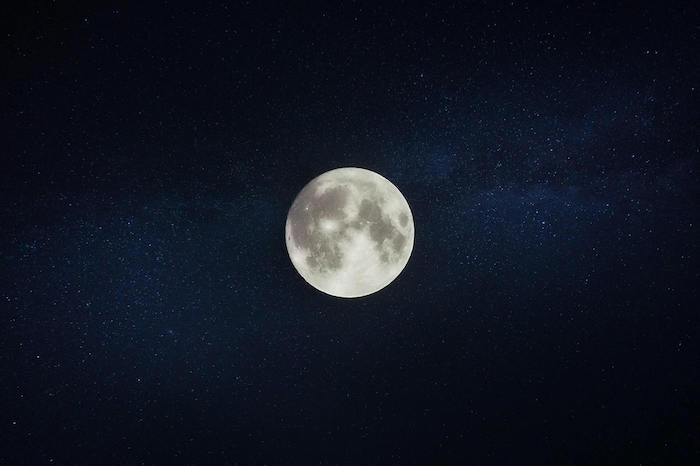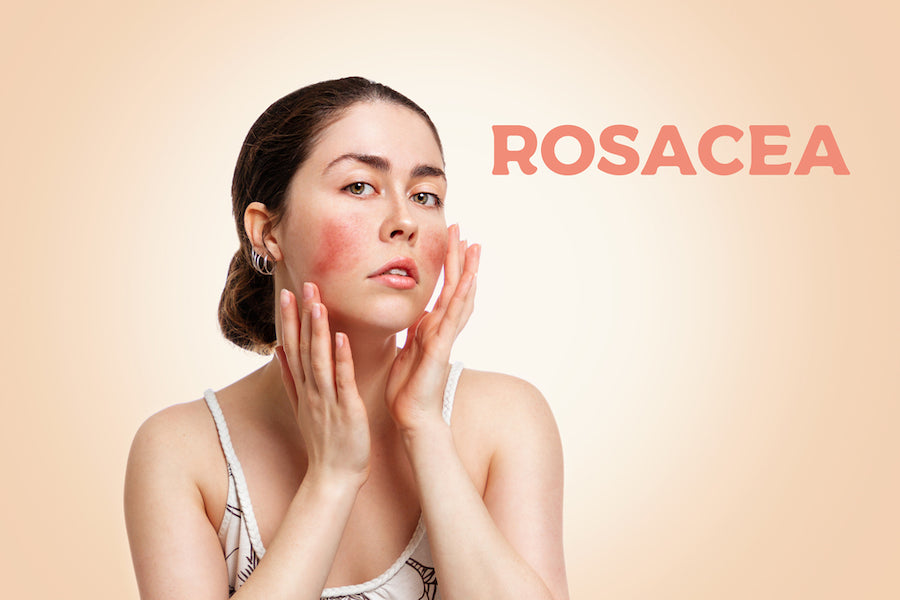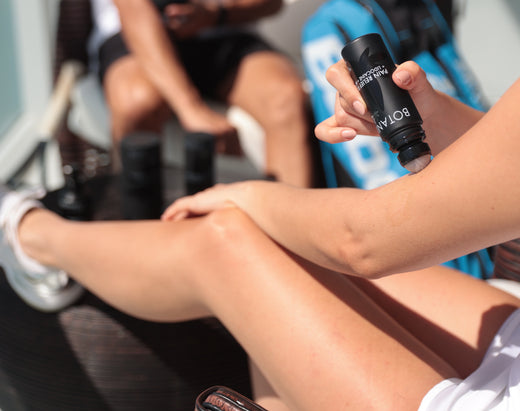
CBD versus Melatonin For Sleep
You can’t put a price tag on sleep. But if you could? It’d be worth its weight in gold, if not more. That’s because sleep plays a crucial role in our cognitive functions and emotional well-being, as well as our immune responses and our body’s ability to recover. It even can contribute to a more youthful appearance by reducing inflammation, boosting collagen production and hydration, and limiting stress.
With sleep being the closest thing available to a magic wand, many adults turn to supplements to improve its ease and quality. One such natural solution widely discussed for its effects on sleep is CBD, a compound of the hemp plant. Those unfamiliar with this on-the-rise ingredient may have their fair share of questions: does it cause a “high” or drowsiness? What’s the best way to use CBD for sleep? And how does CBD compare to other sleep aids, like melatonin?
In this article, we’ll explore these questions and dive deeper into how CBD is both similar to and different from melatonin. And good news: you don’t even have to choose between one or the other, as there are products available that incorporate both CBD and melatonin.
Understanding the Basics of CBD for Sleep
Though CBD comes from the same hemp plant as THC, it is entirely different. Mainly, it has no psychoactive components and does not lead to intoxication. Other important notes about CBD is that it has no addictive qualities and cannot induce an overdose. Therefore, CBD is safe to use on a daily basis, and it is not considered a drug that needs to be screened for with any tests. Better still, CBD is even safe for kids and teens!
Legal within the US, CBD oil is a viable alternative to help treat many ailments, and give the user a better quality of life, with pain reduction, help for anxiety and depression, general wellness, and beauty care, and yes, as a sleep aid.
Understanding the Basics of Melatonin for Sleep
Melatonin is a hormone produced by the pineal gland, located in the brain. When melatonin is present it signals two brain receptors, the MT1 and MT2, that tell the brain it is time for sleep. Melatonin is particularly important to the body’s circadian rhythm, but the production of melatonin can easily be interrupted by the amount of light exposure you receive, especially with extended screen time and/or exposure to artificial light after dark, or close to your needed bedtime.
Melatonin is not a sedative, and it does not artificially induce sleep. Like CBD it also does not leave the user with any intoxicating effects. Rather, it provides natural regulation for your sleep cycle, helping to put it on track when it is disrupted, like with jet lag, insomnia, or an irregular work schedule.
Comparing CBD vs. Melatonin for Helping Sleep
To summarize key differences between CBD vs. melatonin for sleep: CBD will ease anxiety and pain that might otherwise keep you awake, putting your mind into a relaxing state. Melatonin works with your body’s biology to induce subtle feelings of sleepiness. Therefore, CBD and melatonin complement one another rather than serve duplicative benefits.
The effects of CBD tend to impact your body quicker than melatonin: Melatonin needs a bit of a head start for your body to understand the message it is transmitting. Part of the reason is that melatonin is mostly found in ingestible pills or gummies, so it must go through the digestive process before the receptors get the signal.
Alternatively, because CBD oil can be taken under the tongue to access receptors directly within the mouth, none of its efficacy is lost in digestion. Therefore, CBD oil can be taken up to an hour before you are ready to go to sleep, but it will still work effectively even closer to bedtime.
However, there is no need to choose! Because melatonin and CBD work on the body in separate ways, they are a perfect marriage of sleep aids for whatever it is that has been keeping you from your best sleep. For a product that combines both, Serentika by Botanika Life CBD Sleep Spray with Melatonin.
Digging Deeper: The Science Behind CBD’s and Melatonin’s Abilities to Help with Sleep
How does CBD interact with the body to help sleepiness
CBD oil interacts with the CB1 and CB2 receptors that are part of the endocannabinoid system in every human body. Because these receptors are in the skin, and other tissues like the mouth and tongue more externally, CBD is able to directly affect areas of concern.
Internally, the receptors spread through every regulatory system, and are also present in the organs. This means that CBD can help reduce or alleviate many of the symptoms from chronic concerns that would keep you from sleeping restfully and consistently.
In the imaginary battle of CBD vs. melatonin, CBD has the advantage in another way: pain management. The plant-based compound's interactions with CB1 and CB2 also interacts with how the body recognizes discomfort. What's more, studies show that CBD assists with reducing inflammation. As a result, it can help alleviate numerous conditions which can contribute to problems with sleep.
How does melatonin complement CBD oil?
Both melatonin and CBD oil are natural elements that work with neurotransmitters to give instructions to the brain. Melatonin’s job is to signal your body that it is time for sleep. In this way, it is an incredibly necessary hormone, because sleep is when the body is able to refresh and rejuvenate. The brain also uses this time for vital processes that help with memory and executive functioning. There are many reasons why people have issues with falling asleep, staying asleep, feeling rested after a sleep cycle, or more than one of these at once.
While melatonin can tackle letting the brain know it’s time to switch gears, CBD oil works a little differently. CBD oil has the ability to reduce stress, anxiety, tension, and promote relaxation. If taken sublingually (under the tongue), it works quickly and efficiently to alleviate many of the problems that would stop you from having an optimum sleep cycle.
In short, melatonin tells your brain it’s time for lights out, and CBD oil inhibits nervous and immune responses that may keep you from sleep. The two together capitalize on their natural body regulation abilities, without being an NSAID, narcotic, or intoxicating drug.
HOW DO CBD & MELATONIN COMPARE TO SLEEPING PILLS
Melatonin and CBD aren’t the only sleep aids available, with synthetic pills like Temazepam or Zaleplon flooding the market. So how do natural wellness solutions compare to pharmaceuticals?
The benefit of synthetic sedatives over melatonin and CBD is that they are faster acting and last longer. Additionally, sleep medications are regulated by the FDA, while CBD and melatonin are considered supplements and are not regulated. While some companies like Botanika Life publish third-party lab results to verify product claims, not every CBD and melatonin brand offers the same level of transparency.
However, synthetic sedatives’ heightened level of potency means that they require a prescription and have the potential for more severe side effects. Additionally, unlike melatonin and CBD, sleeping pills can be addictive, and it's relatively easy to build up a tolerance with regular usage. Therefore, sleeping pills are not suitable for individuals without diagnosed sleep disorder conditions, such as insomnia.
Learn More About Botanika Life’s Sleep Spray with CBD & Melatonin
Botanika Life offers a new and improved Serentika Sleep Spray, specifically formulated with clean botanical ingredients that help support a regular and restful sleep cycle. There’s 300mg of THC-free broad-spectrum CBD, plus GABA, melatonin, and magnesium, which all do the work to combat insomnia, stress, anxiety and restlessness throughotu the night. Here’s a closer look at these ingredients that work together with the CBD oil to make Serentika a superior choice.
GABA, otherwise known as gamma-aminobutyric acid, is an amino acid whose main job is as an inhibitory neurotransmitter. It can be found naturally in tea, tomatoes, soybeans, and some other fermented foods. Because it acts as an inhibitory neurotransmitter, it’s been proven that GABA can contribute to the regulation and mitigation of stress, anxiety, and sleep, as well as memory enhancement.These are all crucial factors in combatting insomnia and promoting beneficial REM and slow-wave sleep cycles. GABA can also help to keep your circadian rhythm balanced and on track.
 Magnesium is a mineral found in the body, many foods, and even antacids and laxatives. Magnesium is part of an enzyme system that works with muscle and nerve functions, blood pressure regulation, protein synthesis, and other important body processes, like glucose control.
Magnesium is a mineral found in the body, many foods, and even antacids and laxatives. Magnesium is part of an enzyme system that works with muscle and nerve functions, blood pressure regulation, protein synthesis, and other important body processes, like glucose control.These body processes that magnesium helps regulate have the effect of providing homeostasis or balance. Many of the effects of daily life, such as stress, anxiety, and deficiencies in nutrition and health, contribute to bad or unsatisfying sleep, which can be mitigated with the proper amount of magnesium.
Unlike melatonin, which needs to be taken closer to bedtime, magnesium can be taken at any time during the day as a supplement. You should also make sure your diet includes the right nutrient-rich food, such as vegetables, grains, and food that has adequate proteins.
Botanika Life prides itself on providing products of the highest quality which utilize plant-based ingredients grown in the USA. All of Botanika Life’s products are vegan, non-GMO, gluten-free, and cruelty-free. Along with that, all products and harvesting procedures are sustainable, with an eye toward innovation for the future and accessibility.
FAQ About CBD, Melatonin & Sleep
Does it make a difference if I use CBD and/or melatonin on an empty stomach?
Melatonin does work better if taken on an empty stomach and ingested CBD is preferable to take with food (under-the-tongue CBD sprays don't benefit either way). However, it's important to note that any gains or losses in potency are quite minuscule for both melatonin and CBD. Therefore, we suggest using your chosen sleep aid (or the combination of the two) both with or without food.
Can I drink alcohol before using CBD or melatonin?
Firstly, it's important to note that alcohol is detremental to healthy sleep, so it's not suggested that you consume alcohol for the purpose of drifting to sleep. Furthermore, alcohol can negatively alter how the melatonin interacts with your body, meaning that it's advisable to keep the two separate.
Can I fly with CBD and melatonin sleep products?
Because CBD and melatonin is legal throughout all of the US, you’re safe to bring such ingredients on your domestic travels. However, this policy doesn’t apply everywhere. Some countries require CBD users to have a prescription, and others outright ban them. More regions are open-minded to melatonin, but it’s still smart to consult with the specific laws of your travel destination.
Is there a risk of CBD or melatonin being addictive?
Neither CBD nor melatonin has addictive, habit-forming properties, as confirmed by the World Health Organization and other leading authorities.
Which sleep aid tends to be more expensive - melatonin or CBD?
If we were to compare top-tier CBD with top-tier melatonin, the former would most likely be more expensive. As we explore in our article about the cost of CBD, the price tag is a direct reflection of the quality, from the harvesting and extraction of the oil to its purity and potency.
What's more, it's important to remember that, unlike melatonin, CBD offers users more than merely the ability to relax before trying to sleep. It suppresses inflammation and physical pain, can improve skin, and elevate mood.
Will taking CBD on its own make me drowsy or help me sleep?
Sleep sprays aren't the only ingestible product we offer at Botanika Life, with one of our top-sellers being the Elite Elixir, conisting of solely full-spectrum and CBD and hemp seed oil. Sublingually using or swallowing CBD can provide many benefits, including putting you in a relaxed state. However, CBD alone won't be nearly as impactful on your sleep as if you use it alongside melatonin.
Why? CBD is non-intoxicating and shouldn't make you drowsy, making it great to use both day and night. In fact, if you do feel drowsy, it may be a sign that your chosen dose was excessive. Therefore, think of CBD as part of the equation you need to reach sleep, with melatonin, magnesium, and GABA completing the solution.
What are additional ways to help maintain regular sleep?
If CBD and melatoin aren't enough to help you achieve the sleep you crave, consider the following lifestyle tweaks:
- Cutting back on your caffeine intake
- Keep a consistent schedule rather than excessively "sleeping in" on weekends
- Consider how to improve your sleeping environment, whether that be purchasing an eye-mask, changing the mattress, or removing the TV
- Limit refined surgars, as studies show that they can contribute to poor sleep




